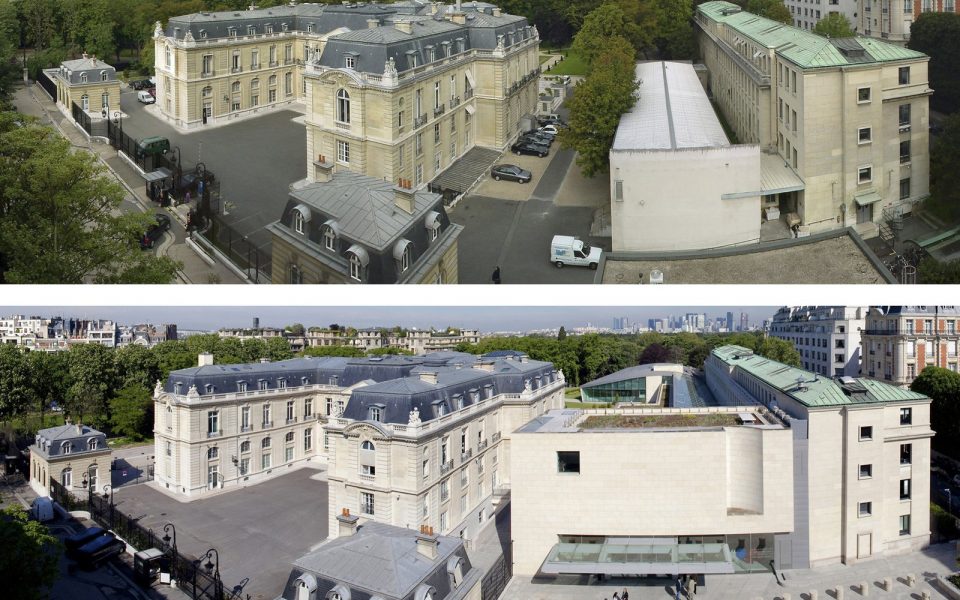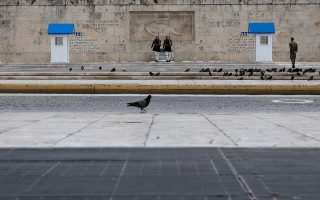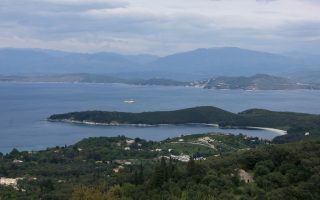Between two worlds: The role of the OECD

The 21st century’s second decade was marked by numerous disputes concerning previous achievements. After the dramatic reduction of world poverty, the development of movement in several sectors and the rapid evolution of technology, the post-Cold War model began to decline. The recent globalization indicators are already showing a downward trend. The pandemic is testing the effectiveness of democratic methods.
The tensions, under the administration of Donald Trump, between the United States and the European Union, as well as Brexit, have unveiled the contradictions in the liberal area. From the outside, China’s rise is de facto challenging Western hegemony. On the inside, the invasion of the Capitol hit one of the most sacrosanct institutions of the American republic. The crisis did not occur in the periphery, but in the center of the liberal world – a fact that should lead to serious revisions.
Any forces representing liberal and democratic values must coordinate their efforts to stop threats from the inside or the outside in a unified and balanced way. The challenges posed by authoritarian regimes must be met without leading to a new cold war; the predicaments of the globalization victims in developed countries must be acknowledged without slipping into populism; the transformations must be regulated so that they do not create upheavals; the opening of the world must be delimited in order to avoid systemic catastrophes. In other words, humanity must regain control of time and space.
Common awareness about the environment, global warming, the pandemic and other specific issues is established. They dictate the need for collective action, beyond national borders. Politics remains the determining factor: who is making the decisions and on which approach. Therefore, the main issue, as successive crises have shown, is the structure of the international system.
The Organization for Economic Cooperation and Development is an ad hoc supportive institution. It is a technocratic organization, with a direct contribution to the documentation of governments’ economic and other policies, as well as to the management of the global economic and financial systems. Its indirect role in shaping and guiding the world system is commonly ignored. Through its discreet, consensual, complex practice it contributed to the cohesion of the European democracies against the Soviets’ divisive tactics, to their connection with the developing world, to the integration of post-communist countries, to securing the conditions for post-Cold War transformations.
The OECD was forged through successive adjustments. Despite the radical changes, it kept its identity, as shown by the solemn 60th anniversary of its convention signing. It has long experience in handling today’s stakes. First, it has established the intellectual and scientific sector. Today’s dilemmas do not have easy, “ideological” answers. The OECD’s elaborate system, set up by the Secretariat, the committees and the Council, provides the framework for seeking balanced answers to complex problems.
Second, it comprises a network of countries, the limited number and ideological homogeneity of which ensure the conditions for common perception and action. The OECD therefore has the potential to act as an international leader, as it has repeatedly shown in the past.
Finally, as it forms a cohesive collective global subject, the OECD discourses with the rest of the humanity and, in particular, with its vulnerable, unstable and fluid part, the developing world. The aid provided protects this world from “attractive” authoritarian forces.
The experiential turning point of the global system coincides with the election of a new secretary-general, in which each candidate’s personal abilities will be assessed. However, the current situation also brings additional criteria regarding the current political and geopolitical requirements. As in the Cold War, the OECD can contribute to the cohesion of its member-states by mitigating, through dialogue, the divisive actions of foreign powers. The new secretary-general must represent, with their personality and background, the balance between the various regional groups to which the member-states belong.
In the rivalry between China and the American-led Western world, according to Chinese analyst Yan Xuetong, “it is the battle for the people’s hearts and minds that will determine who eventually prevails.” **
The developing world perceives the liberal world through the OECD as well, a tangible image of which is the secretary-general – a person who should not be associated with any of the stereotypes that burden the relations between the two worlds.
Ambassador Georges Prevelakis is the permanent representative of Greece to the OECD.
** Yan Xuetong, “How China can defeat America,” The New York Times, November 20, 2011.





